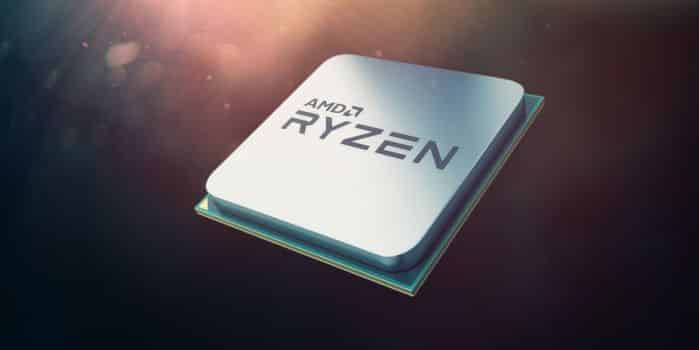
AMD has long been struggling in the CPU market even though its GPUs have been received well over the years. It seems this is all set to change with launch of AMD Ryzen CPUs produced on a 14nm FinFET process, which AMD claims, can take on Intel’s best at half the price. Sounds to good to be true? Not the case here.
The new CPU chips are based on AMD’s new Zen architecture, comes with 8-cores, 16 threads plus 16MB L3 cache and claim to offer high-end performance, yet retain a price-for-performance ratio unseen in the CPU market for more than a decade. Zen chips offer a 52 percent boost in instructions per cycle (IPC) over its last generation.
There is still plenty of power left on tap as these CPUs come with SenseMI (Machine Intelligence) tech. This allows for better CPU power efficiency “Pure Power”, which is a set of temperature, clock speed, and voltage sensors. Then there’s “Precision Boost” which uses this information to adjust the core clock speed on-the-fly “without halts or queue drains” in small 25MHz increments.
AMD Chief Executive, Lisa Su, said that AMD had just one goal in mind when it was developing the new chips i.e. “We wanted to disrupt the PC market, we wanted to bring innovation, choice and performance to as many people as possible.”
The highest end chip is the R7 1800X. It compares directly to Intel’s best Haswell based i7-5960X and Broadwell based i7-6900K and a few server Xeon chips, all of which cost over $1,100.
The 1800X has a base clock of 3.6GHz with a boost of up to 4.0GHz. It has the same 8 cores, 16 threads and 16MB L3 cache. AMD claims a TDP of just 95W compared to Intel’s 140W for the same performance.
Compared to Intel’s latest Broadwell flagship chip, AMD claims its new processor is 9 percent better in Cinebench R15 multithreaded rendering test. In single threaded performance, both come out with the same performance. AMD manages to this with a slightly higher clock speed since its IPC is still a little behind AMD but manages to conserve power thanks to the new Zen architecture.
AMD testing also showed that it beat Intel’s flagship chip at Handbrake video encoding and boasted better frame rates in Snipe Elite at 4K.
The best part is the price. You only have to pay $500 for the chip that beats Intel’s $1,100 one and you still save on TDP.
R7 1700X also comes with 8 cores, 16 threads and 16MB L3 cache but with a slightly lower clock speed. It is clocked at 3.4GHz with a boost speed of 3.8GHz. AMD is positioning 1700X against Intel Core i7-6800K which only has 6 cores and 12 threads and still costs higher than AMD at $439.
You get all this for $399, and still get better performance than Intel’s competitive CPU.
This is the least powerful chip in the bunch, but by no means a slouch. It competes head on with Core i7-7700K which costs $349.
While Intel’s i7-7700K comes with an outrageous clock speed of 4.2GHz and a boost frequency of 4.5GHz, it only has 4 cores and 8 threads – half of what AMD boasts. AMD concedes, Intel does open up a gap in single core performance here, but when it comes to multi-threaded performance, AMD thrashes the 7700K with a 46 percent higher score in Cinebench.
AMD has priced this one at just $329.
AMD has not only released its first credible gaming CPU in more than a decade but has also put Intel on the back-foot here as it has priced its chips below Intel’s less powerful chips. Intel must surely be thinking of ways to outmarket AMD right now by either reducing its prices or increasing clock speeds.
The chips are already available for Pre-order today and will go on sale on March 2, which AMD claims is the hard launch date.
AMD’s Ryzen 7 1800X CPU is already the best selling chip on Amazon and the announcement has helped AMD receive a 2% shares boost in just a few hours. AMD has also announced that it will be bringing Vega architecture based GPUs in latter half of the year.
However, we will still have to wait for reviews to see what sort of performance we can expect, though initial numbers give a pretty clear indication that Intel is in trouble. It’s great for the consumers as the PC CPU market is seeing competition for the first time in ages which better price-performance ratio for everyone.
Via: Arstechnica